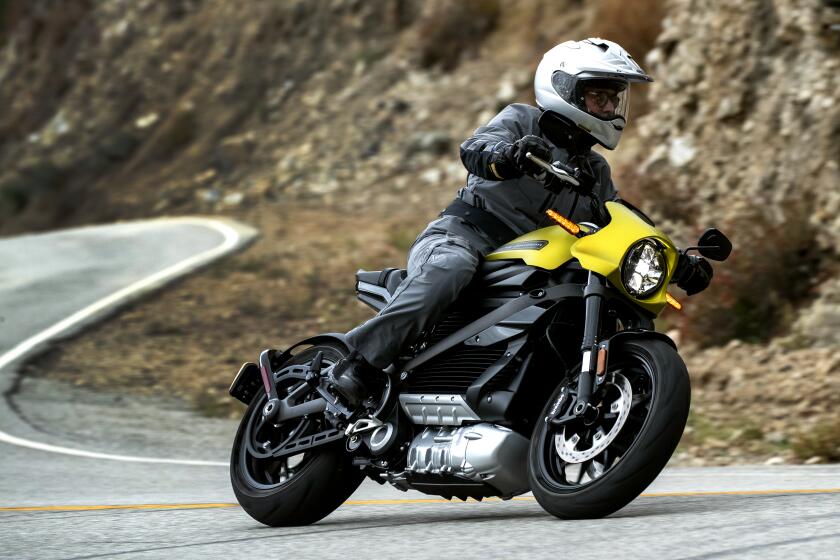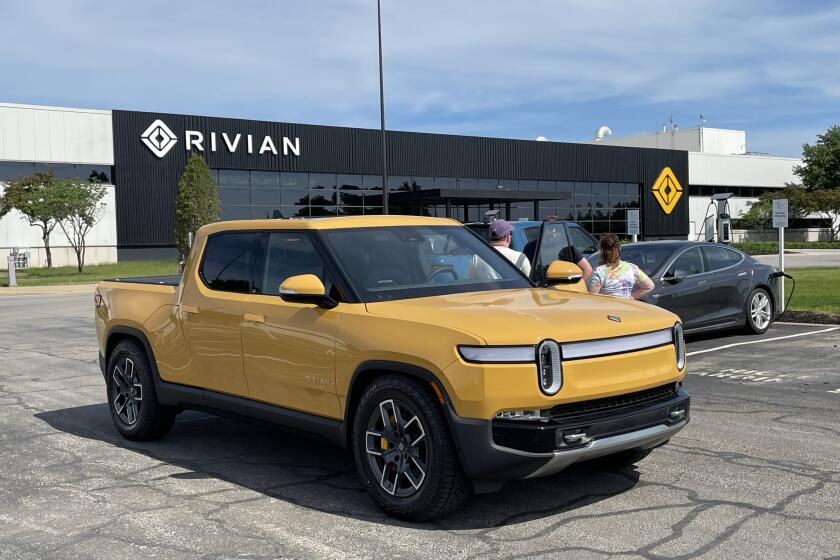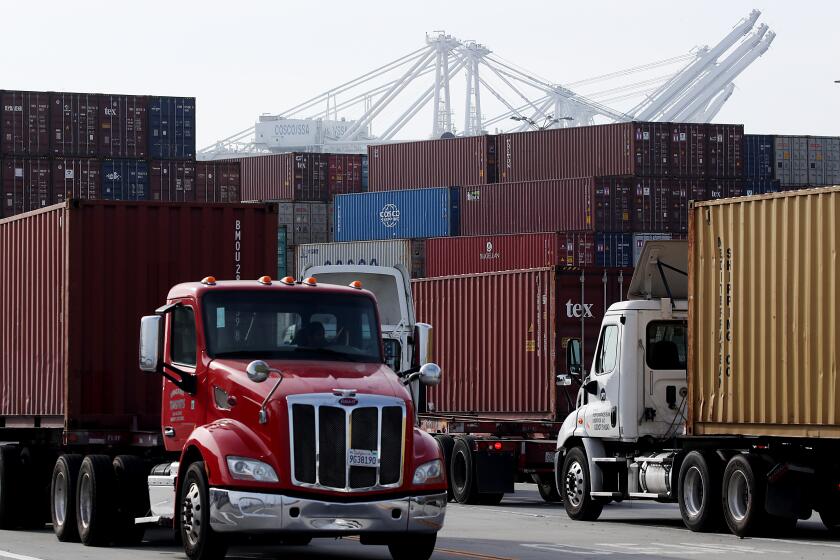A question of freedom vs. safety
Jerry Garrett roams Atlanta in a Ford Ranger, stopping frequently at the side of the road to pick up old lumber, metal and junk. It is a routine that does not involve the fastening or unfastening of a seat belt.
“I ain’t never liked seat belts,” the 55-year-old construction worker said as he pulled into a Lowe’s parking lot in Atlanta. “I don’t believe the government should force working men to wear them.”
Garrett is thankful to live in Georgia, where legislators until now have not supported laws requiring pickup drivers to buckle up. Yet lawmakers are considering a bill that would remove pickup trucks from their exemption in the state’s seat belt law.
Safety statistics and lost federal highway grants are increasing the pressure for change in the few states that don’t require universal seat belt use, including Indiana and New Hampshire. But as the battle in Georgia demonstrates, it is not an easily resolved matter.
There, the bill’s sponsor, Sen. Don Thomas, says requiring Georgia pickup drivers to wear seat belts would save lives.
But the proposal has serious opposition in the Georgia Legislature: Some say it would inconvenience farmers -- and some believe it would be a small, but symbolic, sign of diminishing freedom on American roads.
In Georgia, the pickup is an icon of traditional, rugged independence -- so much so, the vehicle made a star appearance in the opening ceremony of the 1996 Olympics in Atlanta. And some drivers are so galled by the notion of seat belts -- or harnesses, as they call them -- that they cut them out of the vehicle or disable the audio alert.
Georgia pickup drivers were exempted from the state’s law requiring the wearing of seat belts after rural lawmakers argued it would encumber farmers on back roads.
Over the years, the seat-belts-in-pickups debate has become something of a regular political fixture here as legislators have attempted -- but failed -- to modify the law.
Yet, as pickups have established themselves as urban and suburban vehicles, safety has become a growing concern.
In late March, legislators in Indiana, which exempts passengers and vehicles plated as trucks, approved a bill that would require wearing seat belts -- though the House and Senate have not yet reconciled their versions of the bill.
New Hampshire requires children up to age 18 to wear restraints, but not adults. On Thursday, the state’s House voted to insist adults buckle up too. That bill now goes to the Senate.
“To every thing there is a season and a time to every purpose under heaven,” said Thomas, a Republican, as he introduced the bill in the Georgia Senate. “There’s a time to buckle up, and there’s a time to unbuckle.”
Georgia’s present seat belt law already applies to SUVs, as well as to pickup drivers who are younger than 18.
The bill proposes to add pickups, along with a provision that excludes “farm vehicles equipped for and used primarily for off-road agricultural use.”
Although it passed the Senate, 45-10, in early March, its passage in the House is not assured. Among those who oppose it is Glenn Richardson, the House speaker -- who believes mandatory seat belts are intrusions on individual freedom.
For Richardson, a Republican who represents a suburban district, the state has encroached enough on its citizens’ travel in the last decade.
First, he said, law enforcement officers stopped those who were not wearing seat belts, then they imposed $10 fines, and now they impose $15 fines.
“Next, they will say we probably ought to impose helmets in automobiles and, while we’re at it, what about shoulder restraint devices?” he said.
Safety advocates, meanwhile, evoke a different kind of nightmare -- one of carnage on urban and suburban roads.
They describe pickups as among the most dangerous vehicles on American roads. Pickups are twice as likely as passenger cars to roll over in a crash, and their drivers are the least likely to regularly wear safety belts, according to the National Highway Traffic Safety Administration.
In Georgia, there were 271 pickup truck drivers killed in traffic crashes in 2005 -- of those, 189 were not wearing seat belts.
While some legislators argue pickups should be exempted because of their importance to farmers, William Ferris, senior associate director at the Center for the Study of the American South at the University of North Carolina, said the pickup as a vehicle of the white, rural working class was a “Southern myth.”
“In their minds, the people who own these trucks are still good old country boys,” Ferris said. “The reality is that most of them no longer live on farms.”
One city resident who drives a pickup says he feels safer without a seat belt.
“If I wore a seat belt, I wouldn’t have had a head,” said Eric Abbott, 34, a general contractor and remodeler who lives in East Atlanta, as he pointed to a thick scar on the back of his neck.
Abbott was thrown from his seat when a vehicle rear-ended his truck, and he believes the impact would have been worse if he had worn a seat belt.
Even if Georgia law changed, he said, he would continue to drive his red Chevy 1500 without a seat belt.
Most pickup drivers believe that seat belts do increase safety -- which safety experts say is clearly supported by data.
In the South, about 75% of pickup drivers wear seat belts, a 19% increase since 2000, according to the National Highway Traffic Safety Administration. Many are contemptuous of those who don’t wear seat belts.
“Anyone who doesn’t wear a seat belt is a fool,” said Tom Kovarik, 33, a blacksmith who drives a Ford F150. “The seat belt is not the line to draw on the path to dystopia.”
More worrisome on the road to intrusion into everyday life, he said, is the “black box” device that can be installed in vehicles to electronically record information in the event of an accident.
“Now, that could really be invasive,” he said.
*




